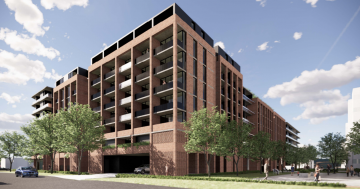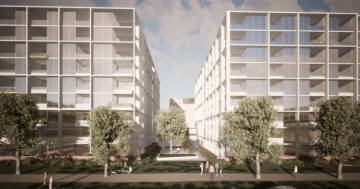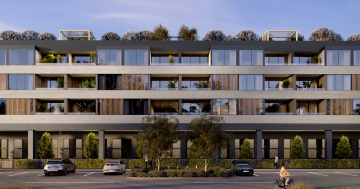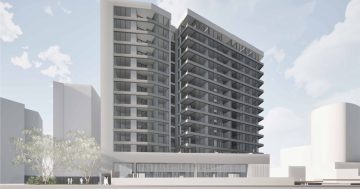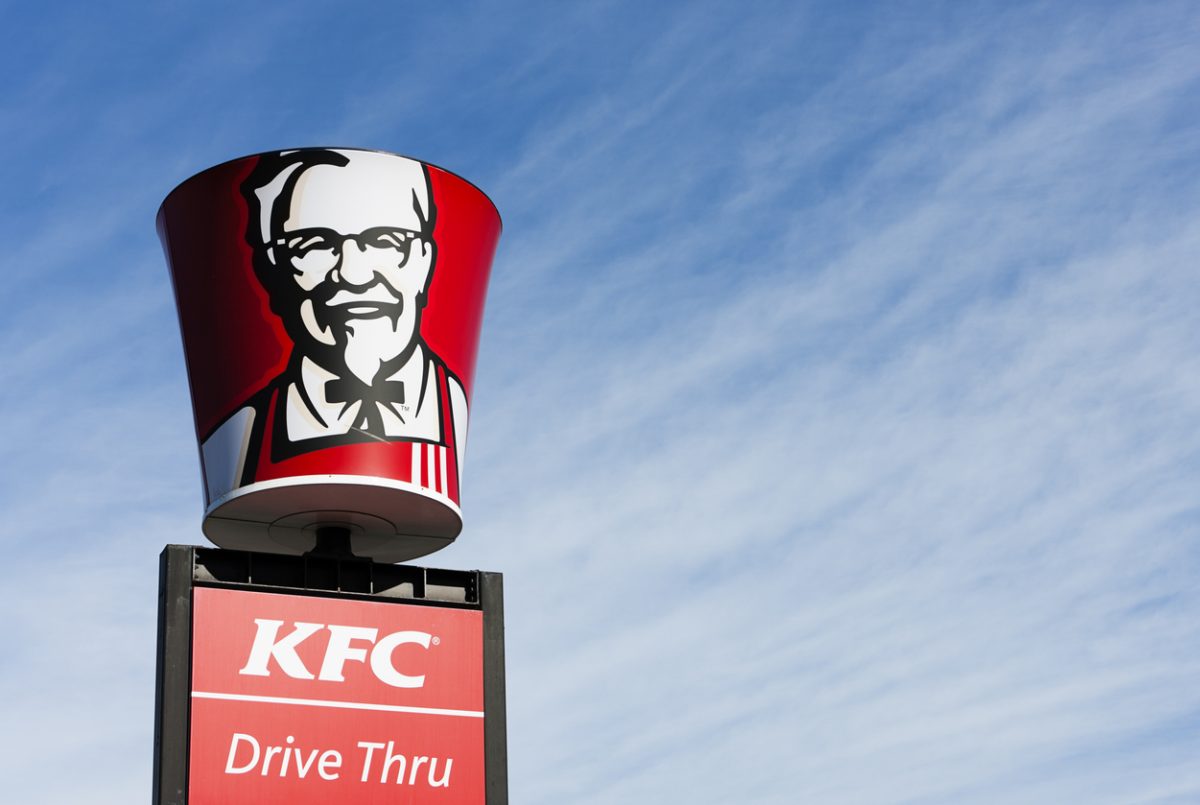
A development application for a fast food chain at Chisholm Shops has been refused. Photo: File.
The ACT Planning and Land Authority has labelled the proposed KFC at Chisholm shops an “overdevelopment” in their decision to refuse the controversial plans.
The published decision also cited concerns about the impact on vehicle and pedestrian movements, a lack of parking options, and the proposal itself being “unclear and contradictory”.
Chisholm Village Pty Limited lodged the $1.2 million proposal for the KFC and drive-through, car wash facilities, supermarket click-and-collect facilities and six parking spaces in 2022.
Purdon Planning later amended the original plans in early 2023 in response to community criticism, including a petition.
One of the reasons listed in the nearly 300-signature-strong petition to the ACT Legislative Assembly against the proposal was that a fast-food outlet would be detrimental to the community’s health.
The petition also referred to a failed McDonald’s proposal put forward by Chisholm Village for a different site within the same shopping complex, which also attracted community criticism.
But the authority found fast food outlets were a permissible use of the proposed KFC site, which currently houses a car park, but refused “this particular configuration of the development”.
Other concerns cited in the petition included a negative economic impact on nearby small business owners and the location of the KFC being unsafe for vehicles and pedestrians.
While the authority paid little attention to the former point, the impact on vehicles and pedestrians formed a large part of the reasoning given for the development’s refusal.
These impacts included “too many potential vehicle and pedestrian conflict points [and] potential for queuing and ‘overspill’ into the road network”.
The combination of increasing parking demand and reducing the number of available parking spaces to six was also listed as a concern.
The authority also found some detail was lacking in the development application.
“The description of the proposal was inconsistent with the set of plans provided and no further clarity was provided through any of the supporting documentation,” the report said.
Chisholm Village spokesperson James Tsalikis said in a statement that Chisholm respected the authority’s decision and was exploring their options.
“We strongly believe that our proposed development will be a positive addition to the community, providing much-needed services and amenities,” he said.
“It is a shame the politicisation of this proposal has set back the Chisholm Group Centre’s ongoing revitalisation.
“We believe the established planning rules should apply equally to all and that submissions be assessed on their merit, independently by the statutory body, rather than by the whims of a few loud commentators.”
Mr Tsalikis said the suggestion Chisholm Village was an inappropriate location for a fast food outlet was disappointing and that the KFC development could co-exist alongside small businesses.
“We believe that a new development will … bring additional foot traffic and customers to the area. I also believe in fair competition and the right of businesses to operate in a competitive marketplace,” he said.
“A new business, whether it is a multinational company or a small local business, will bring benefits to the community, including job opportunities and increased economic activity.”
Mr Tsalikis highlighted that Chisholm had also consulted with traffic experts to ensure road safety and that a parking assessment showed there was sufficient off-site parking.
Brindabella Greens MLA Johnathan Davis said he had heard concerns from “hundreds” of constituents about the proposed development and welcomed the news it had been refused.
“The owners of the Chisholm shopping centre continue to keep the former tavern [on the site of Chisholm Village’s failed McDonald’s development] sitting empty and derelict while they’ve been trying to push through this development application for a KFC as if they’re trying to essentially force the community into accepting what they want, or alternatively, they’ll get nothing at all,” he said.
Mr Davis said the situation demonstrated why a vacancy tax on commercial and residential properties was necessary.













